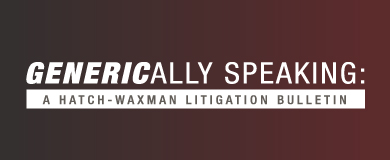- Acumen Powered by Robins Kaplan LLP®
- Affirmative Recovery
- American Indian Law and Policy
- Antitrust and Trade Regulation
- Appellate Advocacy and Guidance
- Business Litigation
- Civil Rights and Police Misconduct
- Class Action Litigation
- Commercial/Project Finance and Real Estate
- Corporate Governance and Special Situations
- Corporate Restructuring and Bankruptcy
- Domestic and International Arbitration
- Entertainment and Media Litigation
- Health Care Litigation
- Insurance and Catastrophic Loss
- Intellectual Property and Technology Litigation
- Mass Tort Attorneys
- Medical Malpractice Attorneys
- Personal Injury Attorneys
- Telecommunications Litigation and Arbitration
- Wealth Planning, Administration, and Fiduciary Disputes
Acumen Powered by Robins Kaplan LLP®
Ediscovery, Applied Science and Economics, and Litigation Support Solutions
-
April 23, 2024David Martinez Recognized Among Top 100 Lawyers in Los Angeles by LA Business Journal
-
April 15, 2024Robins Kaplan Named to 2024 BTI Client Service A-Team
-
April 9, 2024Robins Kaplan LLP Files Complaint Against Social Media Giants Meta, Snap, TikTok on Behalf of Spirit Lake Nation, Menominee Indian Tribe of Wisconsin
-
April 24, 2024IP Leadership Executive Summit
-
April 24, 2024IP Odyssey: Navigating the Latest Developments in Intellectual Property Law
-
April 30, 2024Navigating Generational Dynamics
-
March 2024e-Commerce: Pitfalls and Protections
-
March 22, 2024‘In re Cellect’:
-
March 14, 2024How Many Cases Have You Tried to a Verdict?
-
September 16, 2022Uber Company Systems Compromised by Widespread Cyber Hack
-
September 15, 2022US Averts Rail Workers Strike With Last-Minute Tentative Deal
-
September 14, 2022Hotter-Than-Expected August Inflation Prompts Massive Wall Street Selloff
Find additional firm contact information for press inquiries.
Find resources to help navigate legal and business complexities.
Novartis Pharms. Corp. v. Accord Healthcare Inc.
Gilenya®/fingolimod
August 10, 2020

Case Name: Novartis Pharms. Corp. v. Accord Healthcare Inc., No. 18-1043-KAJ (D. Del. August 10, 2020) (Jordan, J.)
Drug Product and Patent(s)-in-Suit: Gilenya® (fingolimod); U.S. Patent No. 9,187,405 (“the ’405 patent”)
Nature of the Case and Issue(s) Presented: Gilenya is an oral formulation that is used to treat relapsing-remitting multiple sclerosis (“RRMS”). The ’405 patent claims methods to treat RRMS with 0.5 mg of fingolimod absent an immediately preceding loading dose. Novartis sought to prevent defendants from launching generic equivalents to Gilenya. After a four-day bench trial, the court found that the ’405 patent was not invalid for lack of written description or anticipation, and that defendants induced and contributed to the infringement of the ’405 patent.
Why Novartis Prevailed: Defendants argued that the ’405 patent was invalid for lack of written description and anticipation. As to written description, Defendants claimed that the ’405 patent did not contain an adequate written description instructing physicians to omit a loading dose before administering the drug. Concerning anticipation, Defendants argued that the ’405 patent was anticipated by an abstract published in 2006. Plaintiff responded that the ’405 patent adequately described the invention, and that the 2006 published abstract did not anticipate because it was not prior art, did not disclose the claimed invention, and was not enabled.
The court found Defendants were liable for induced infringement as their proposed label instructed physicians and patients to perform every element of the patented method. A prescribing physician would understand the label to contain the complete dosing information, and the enclosed instructions dictated the dose of Defendants’ generic drug exactly as it is described in the ’405 patent—0.5 mg daily without a loading dose. Defendants were also found liable for contributory infringement, as Defendants knew of the ’405 patent and the treatment method it sets forth, and because Defendants’ generic drug had no other substantial non-infringing uses: if a user were to follow the instructions on the label there would be infringement.
Next, the court found that the patent’s written description was adequate when read as a whole, describing a daily dosage of 0.5 mg without a preceding loading dose. A POSITA would have understood that the invention contained a treatment purpose and that the treatment was for RMMS. Defendants’ anticipation arguments were also rejected, as the court found that declarations submitted by Defendants for the proposition that the 2006 abstract was publicly available in June 2006 were hearsay, and even if the 2006 abstract was prior art, it did not anticipate the ’405 patent because it did not preclude the use of a loading dose in the clinical trial it described.
Related Professionals
Christopher A. Pinahs
Partner
Related Publications
Related News
If you are interested in having us represent you, you should call us so we can determine whether the matter is one for which we are willing or able to accept professional responsibility. We will not make this determination by e-mail communication. The telephone numbers and addresses for our offices are listed on this page. We reserve the right to decline any representation. We may be required to decline representation if it would create a conflict of interest with our other clients.
By accepting these terms, you are confirming that you have read and understood this important notice.
